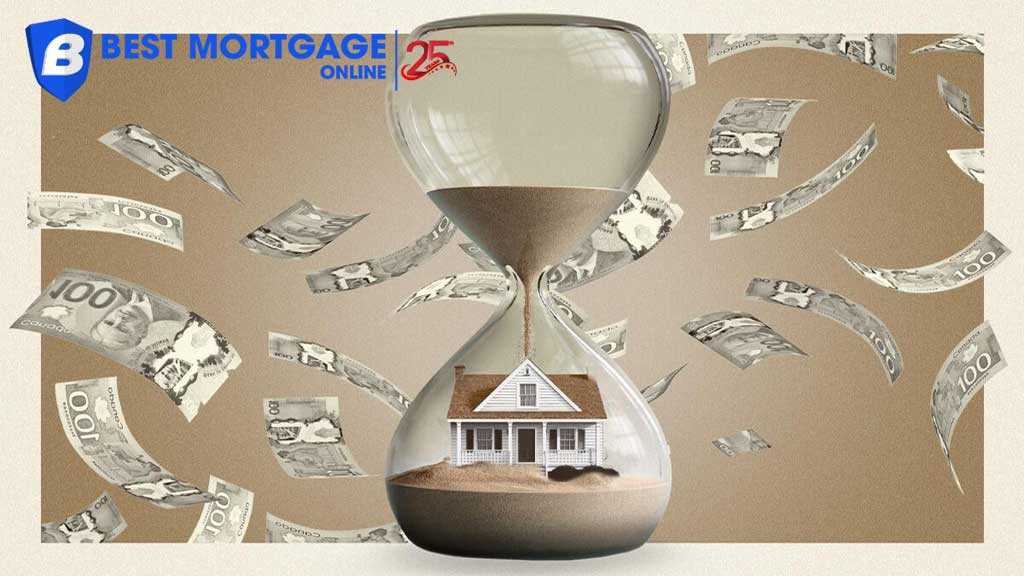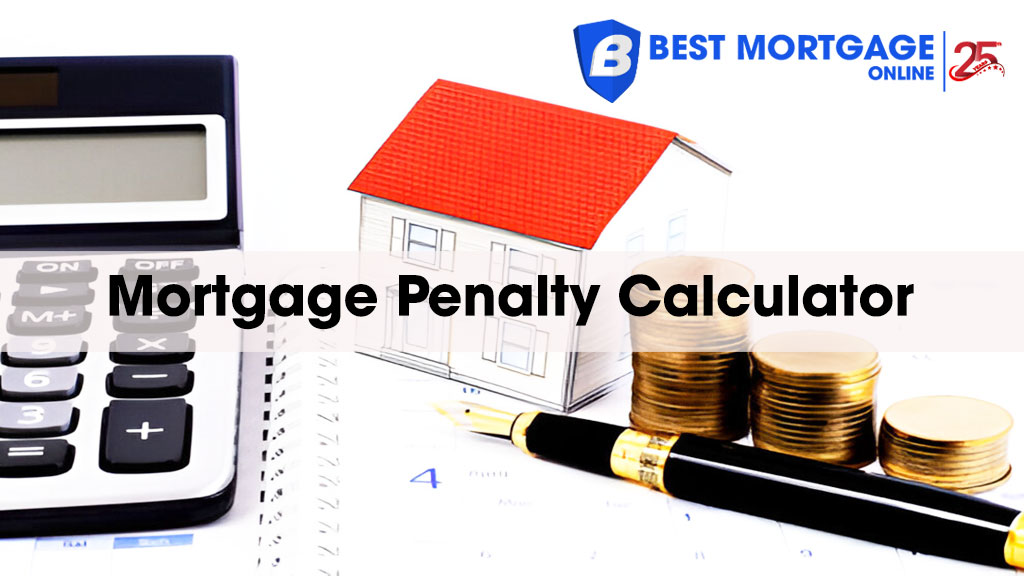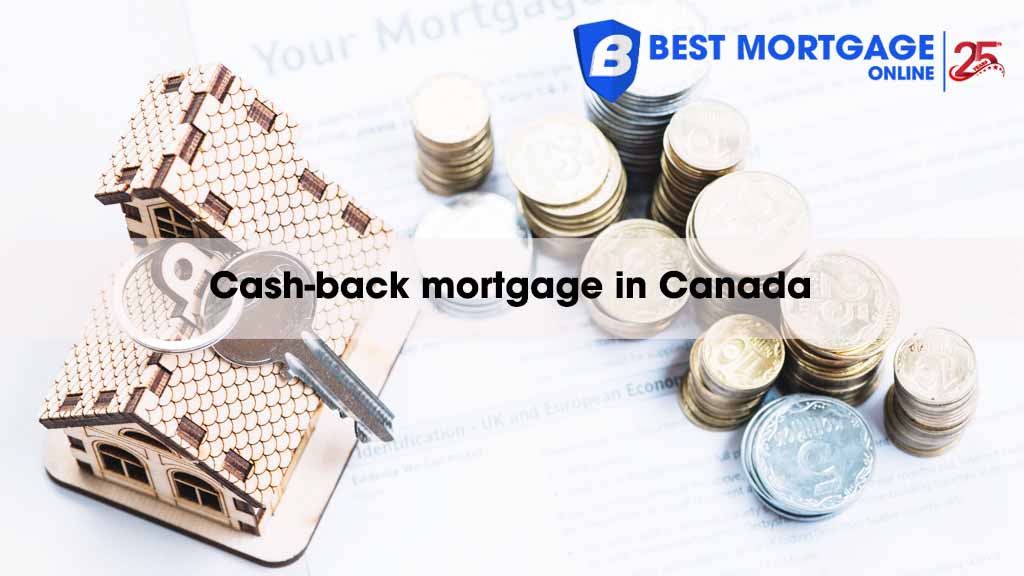With rising home price putting pressure on household budgets across Canada, many homeowners dream of the day they can finally pay off their mortgage and achieve financial freedom. But is it actually possible to be mortgage-free sooner? Completely!
This guide will explore how to pay off mortgage faster with tested strategies, ultimately saving you thousands of dollars in interest payments.
5 best ways to pay off your mortgage in Canada

Here are the most brilliant ways to pay off mortgage in Canada ahead of schedule and slash interest costs:
Find the best mortgage rate
A lower interest rate means more of your payment goes toward reducing your principal rather than paying interest. Even a slight reduction in your rate can make a big difference over the decades-long life of a mortgage.
Be sure to shop around with multiple lenders when you apply for a mortgage or renew an existing one.
Take advantage of prepayment privileges
Most lenders allow you to make additional lump sum payments or increase your regular payment amount by a certain percentage each year without penalties. Be sure to understand the repayment terms of your mortgage contract so you know what options are available.
Common privileges include:
- Making a lump sum payment up to a specified limit (e.g. 15% of the original principal)
- Increasing regular payment amounts by up to 15% annually
- Doubling up a payment once per year
- Making unlimited extra payments in the last year of your term (before renewal) without penalties
Speak with your lender to confirm your prepayment options before making additional contributions so you don’t risk penalties.
Shorten your mortgage amortization
Shortening your amortization period from the full 25 or 30 years to a faster timeframe (e.g. 15 or 20 years) will increase your regular payments slightly. But in return, you’ll own your home free and clear much sooner and pay far less interest overall.
Ask your lender to calculate different amortization scenarios when applying for your mortgage. The savings could be significant if you can afford the higher monthly costs of a quicker amortization schedule.
Switch to accelerated weekly or biweekly payments
Accelerated payment frequencies allow you to pay the equivalent of an extra monthly mortgage payment each year. Aligning your existing cash flow to this automated payment schedule can shave several years off your amortization with little extra effort.
Monthly vs. Accelerated Bi-Weekly Payment Comparison Example
| Scenario Details | Monthly Payments | Accelerated Bi-Weekly | Advantage |
|---|---|---|---|
| Mortgage Principal | $200,000 | $200,000 | – |
| Interest Rate | 6.0% | 6.0% | – |
| Payment Amount | $1,280 per month | $640 every two weeks | Equivalent of one extra payment per year |
| Time to Pay Off | 25 Years | 21 Years | 4 Years sooner |
| Total Interest Paid | ~$184,000 | ~$149,000 | ~$35,000 in savings |
As the table demonstrates, this simple change in payment frequency option has remarkable results. You can set this up with your lender, and the process becomes automatic.
Keep your payment the same when changing mortgage terms
If you renew your mortgage at a lower interest rate, you usually can keep the same payment amount as before, even though a lower rate would allow a lower payment.
The extra amount is applied directly to your principal by maintaining the same higher payment. This way, you can potentially shave years off your amortization without actively changing your budget.
Why paying off a mortgage early matters
Quickly getting out from under the burden of a mortgage has compelling financial benefits. Consider a typical $300,000 mortgage at 5% with a 25-year amortization, you would pay over $215,000 just in interest, money that builds no home equity whatsoever. Alternatively, when extra prepayments are made, more funds are allocated directly to paying down your principal balance, which accelerates how quickly you build ownership stake and equity in the property.
Eliminating this single massive debt delivers an immense feeling of financial freedom and flexibility to pursue other priorities. Without that monthly mortgage millstone, you can redirect those ongoing funds into building up your retirement and investment accounts, or simply enjoying life more.
What risks or drawbacks should you consider?
While paying off your home faster certainly benefits, it’s helpful to balance that decision with an awareness of the downsides:
Prepayment penalties
As outlined earlier, exceeding your annual prepayment privilege specified in your mortgage contract triggers expensive penalties, often 3 months’ interest. This amount could easily wipe out years of compound interest savings from making extra payments. Thoroughly understand these terms.
Less accessible savings
Unlike money in a high-interest savings account, every extra dollar paid into your mortgage can’t be easily withdrawn for emergencies. Ensure you have a sufficient rainy day fund before making extra mortgage payments.
RRSP investment opportunity cost
Some financial experts argue focusing funds on maxing out Registered Retirement Savings Plan contributions makes better mathematical sense long-term. RRSP investments earn tax-free growth and compound substantially over decades. Use an online calculator to help decide between these options.
Should you pay off your mortgage early or invest?

Homeowners may wonder if investing your extra funds makes more financial sense than making lump sum payments. As with most money decisions, there is no one-size-fits-all answer. Here are guidelines on whether to pay off your mortgage faster or invest those funds:
- Compare rates of return: If your mortgage rate is higher than the expected investment returns, put extra money toward your mortgage. If you can realistically earn more investing, then invest.
- Risk tolerance: Paying your mortgage faster provides a guaranteed return equal to the interest rate you avoid. Stocks and other investments come with more risk but potentially bigger rewards.
- Time horizon: The longer your timeframe, the more worthwhile investing becomes since you can ride out volatility. A short horizon favours debt reduction.
- Cash flow: If the extra funds available would eventually go to mortgage payments anyway, paying down the principal now assures that those funds will reduce your debts sooner.
- Peace of mind: For some, being mortgage-free provides significant emotional benefits and simplifies retirement planning.
As with any big financial decision, speaking with a mortgage professional or financial advisor can help weigh the pros and cons of your specific situation.
FAQs on how to pay off mortgage faster
What is a prepayment privilege?
A prepayment privilege is a feature included in your mortgage contract that allows you to pay extra money towards your mortgage principal without incurring a penalty. This typically includes the ability to increase your regular payments by a certain percentage and/or make lump-sum payments up to a specified annual limit.
Can I refinance my mortgage to pay it off faster?
Yes, refinancing is a strategy where you replace your existing mortgage with a new one. This can be advantageous if your financial situation has improved and you can qualify for a significantly lower interest rate. The money saved on interest can then be used to increase your payments and shorten your amortization period.
What is a blend-and-extend option for a mortgage?
A "blend-and-extend" option is a type of early renewal that some lenders offer. It allows you to combine your current interest rate with a new market rate before your term is officially over. This can be a way to secure a lower interest rate sooner, which helps you pay down the principal faster if you keep your payments at the same level.
Is renting out part of my home a good strategy?
It can be a very effective one. If you have a spare bedroom, basement, or garage that you are not using, renting it out can create a steady income stream. This extra cash can then be applied directly to your mortgage to help you pay it off faster.
If I increase my regular mortgage payment, can I easily lower it again?
Typically, no. Once you commit to increasing your regular payment amount, most lenders will not allow you to lower it again until your current mortgage term expires. This is why it is essential to ensure you can comfortably and sustainably afford the higher payment before making the change.
What happens if I pay more than my prepayment privilege allows?
If you contribute more money toward your mortgage than the maximum amount specified in your contract's prepayment privilege, your lender will charge you a prepayment penalty. It is crucial to read your mortgage agreement carefully or contact your lender to understand these limits before making large extra payments.
Can I pay off my high-interest credit cards before focusing on my mortgage?
Yes, and in most cases, this is a highly recommended strategy. Credit cards and personal loans typically have much higher interest rates than mortgages. By paying off these more expensive, short-term debts first, you save more money on interest and free up significant cash flow that can then be used to make larger payments on your mortgage.
The bottom line
A dream of being mortgage-free years sooner could absolutely become reality by combining several smarter repayment strategies.
Stay disciplined and consistent over time with whichever methods you select. Before you know it, you’ll have built substantially more home equity, saved thousands in interest, and be closer than ever to unlocking the feelings of freedom and flexibility that come with outright home ownership.
You have the power to make it happen. Now put your plan into motion!




